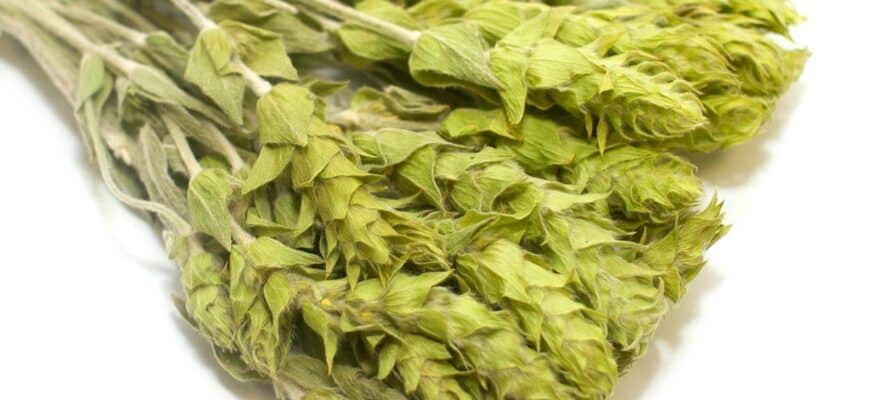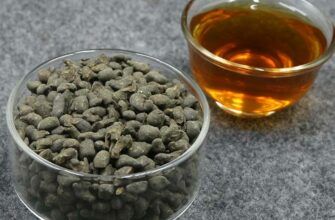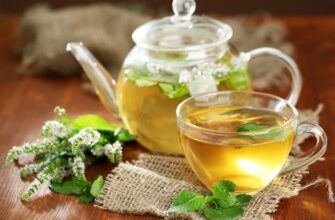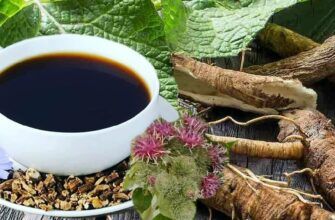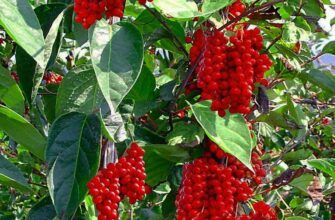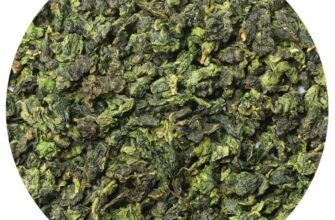You can find a lot of information about Mursala tea on the net, unfortunately, most of it is "selling" or "sensational" materials. They repeat one after another frayed myths about astronauts, a special flight for the Central Committee of the CPSU, Turkish sultans and other nonsense. In fact, the history of Mursala (or Pirin) tea is more interesting than cheap sensations.
- Let's start with the official botanical description
- Useful properties of Mursala tea
- Contraindications
- How to brew Mursala tea
- From the Red Book
- Necessary protective measures
- Protection and reproduction
- Prohibition and "smuggling"
- Where and how to buy Mursala tea
- Analogues and fakes
- About the miraculous properties of Mursala tea
Let's start with the official botanical description
Sideritis scardica Griseb. Sem. Lamiaceae Lamiaceae (Lyasnotkovye) Russian botanical name Zheleznitsa from the ancient Greek sideritis - iron. It was known to the ancient Greeks, the origin of the name is explained by the similarity of the sepals with the shape of a spear or as "helping with wounds caused by iron." The Bulgarian names for the herb mursal tea are from the name of the village of Mursalica, in the vicinity of which there was once a lot of it.
Trigrad tea, in honor of a place in the mountains where there are now tea plantations. Pirin and Rhodope, along the mountain ranges on which the population is distributed. There are little-used names according to the places of origin and collection. It was mentioned as medicinal by the great doctors of antiquity Theophrastus and Dioscorides. It has been known in Russia for a long time, for example, it is described in the publication “N. I. Annenkov. Botanical Dictionary. - St. Petersburg: Imp. Academy of Sciences, 1878. - S. 329.
Plants of the genus Sideritis grow in the south of Russia, the Caucasus, the Volga region, Seen in the south of Siberia and the Far East. In addition, this genus is widely distributed in the southern and subtropical zones of Europe. Many of its species are included in the Red Book or are rare, their collection for any purpose is prohibited, economic activity in the places of growth is limited.
Mursala tea grows not only in Bulgaria. Greece, Albania and Macedonia have small populations. For example, in Greece, the mountain iron (Sideritis montana) species is widespread, it is often confused with Mursala tea. Now 189 species of the genus Sideritis are known, but specialists have not yet completed the exact definition of subspecies.
Three types are most common: Woolly iron, mountain and beak-shaped. Some varieties are outwardly difficult to distinguish from Mursala tea and have a similar chemical composition. Blooms depending on conditions from late June to August. For tea, grass is harvested (the entire above-ground part of the plant). Local herbalists (bilkari) believe that the plant should be cut when it is ready to bloom, but has not yet blossomed.
Properly collected and dried raw materials have a pleasant yellow-green color. Form - in the form of dense, not blossoming "spikelets". Should not crumble and crumble. Many types of Sideritis are recognized as medicinal. It is considered an excellent honey plant, causes poisoning in horses. It grows in the mountains, usually at altitudes over 1000 m. Contains flavonoids, organic acids, iridoids, essential oil. According to some researchers, it contains a unique set of trace elements.
Useful properties of Mursala tea
Studies have established the tonic and restorative properties of Pirin tea. The wound healing effect was known to the ancient Greeks. The opinions of folk and official medicine about this herbal tea generally coincide. It has an antitumor, antibacterial and repellent effect.
It has a good effect on the digestive, immune system, helps against colds and flu, with moderate use it will help asthmatics and cores. Recently, a therapeutic effect in Alzheimer's disease has been experimentally confirmed. In the Balkan countries, Pirin tea and its types have long been used for drinks and spices. Useful for the elderly, sick and even healthy people.
Contraindications
Like any strong remedy, there are contraindications, they are usually kept silent so as not to scare off buyers. Advertisers spread the name "Bulgarian Viagra", Pirin tea has such an effect, but, like Viagra, it can knock out a sick or elderly person. Not without reason, it is considered a good aphrodisiac, because it causes a rush of blood to the pelvic area and partly to the genital organs (in large doses) it is not advisable to use during pregnancy, recent operations, infections of the genitourinary system.
The infusion of the plant can have a strong effect on the body, so people with serious diseases, especially the cardiovascular system, kidneys, liver, should only be taken in small quantities, after consulting a doctor. Doctors warn - while taking potent drugs, any type of intensive care, you need the permission of the attending physician. The active substances of Mursala tea, reacting with the components of the drug, can cause poisoning or mutually neutralize each other. Pregnant women and children under 6 years of age should be used with caution.
How to brew Mursala tea
- There are many ways to brew and opinions on this matter. It is better to describe the way in which tea is prepared by locals and healers:
- They take one or two sprigs per 1 cup and place them in ceramic or enameled dishes.
- Pour cold water
- Boil no more than 5 minutes
- It is better to drink with honey, not sugar.
The dosage for tea or medicinal decoction is often from 1 to 3 branches, based on a glass of drink, other types, for example, Sideritis montanus (Zheleznitsa mountain), you can add more, because there are fewer active components in them. It is better to purchase and brew pure Pirin tea, rather than fees and mixtures. It is bad that unscrupulous people can be engaged in compiling them, for whom the economic benefit from the “dilution” of expensive raw materials is more important than the health of the consumer. Incorrectly compiled collection weakens or neutralizes the therapeutic effect.
From the Red Book
Let's see what the Red Book of the Republic of Bulgaria says about Mursala tea (hereinafter translated quotes). “Environmental Statute: Protected [EN B1ab(ii,iii,v)+2ab(ii,iii,iv); C2a(i)]. ZBR. Balkan endemic. habitats and populations. It grows in open, dry, stony places on limestone terrain on gently sloping, eroded, humus-rich, carbonate soils. Within the boundaries of the alpine and subalpine zones of the highlands.
Usually small populations of about 2000 plants. distribution in Bulgaria. Slavyanka, Pirin (YU) Podopi (Rhodope Mountains); from 1000 to 2200 m altitude General distribution. Central part of the Balkan Peninsula (Albania, Bulgaria, Greece, Macedonia) Negative factors: although the population and economic activity are small, illegal collection for commercial purposes threatens the existence of the species.
Measures taken for protection. View in the list of medicinal species, under a special regime of protection and use. Part of the species populations are included in the reserve "Alibotush" in Slavyanka, National Park "Pirin" Protected area "Trigrad Gorge" in the Rhodopes. Deposits within protected areas of the European Ecological Network Natura 2000 in Bulgaria. It is being studied in developmental biology and is currently cultivated in a crop area of about 50 acres of land in the country.
Necessary protective measures
Must be protected under the Biodiversity Act. Expansion of the cultural space occupied by the cultivation of species and the preservation of seeds in the seed bank. References: Alikovski, 1983; Asenov, 1989; Ganchev, 1989; Evstatieva et al., 1990; Evstatieva & Koleva, 2000; Yordanova & Apostolova, 2000. Author Lyuba Evstatieva » The Red Book article has been abridged here.
Protection and reproduction
Mursala tea has always been a rather rare, local plant. The immoderate collection for trade has brought it to the brink of extinction. For the first time, protective measures were taken by the royal government in 1942. The communists who reigned after World War II continued this work. In the early 90s of the last century, control was weakened, and the endangered species was almost completely exterminated.
The measures taken after that stopped the destruction of Mursala tea, now the threat of extinction has passed. But the populations are so small that strict measures cannot be lifted. About 15 years ago, a rare herb began to be cultivated in the Rhodopes to save the species from extinction and satisfy the market demand. Now their area is 50 acres - 20.2343 hectares. It is allowed to grow and sell the plant only to local natives who know its features well, they must sow three acres and harvest from one.
Due to the complexity of the conditions of the highlands and the exactingness of the plant, the area increases slowly. Landings have to be done on the terraced slopes of the mountains, their preparation requires huge efforts, time and costs. A lot or a little of 20 hectares? This is quite enough to fill the market.
Tea is consumed and sold in small quantities, for most buyers it is an exotic souvenir or a valuable medicine. Very few drink Mursala tea constantly. Of course, poachers do not leave the plant alone. Moreover, the penalty is relatively small.
For example, in July 2016, the environmental police detained 5 poachers in the Slavyanka mountains, near the village of Goleshovo. They seized about 25 kg. Mursala tea. According to the law, they will be fined from 100 to 1000 leva. For comparison, 1 lev is about 0.5 euros or 35 rubles. Experts believe that the attackers could get from 5 to 10 thousand euros on the black market even at the most bargain prices. True, the organizers of the collection, sale or smuggling on a large scale, criminally obtained raw materials, are waiting for fines of 5 thousand euros and prison terms.
Prohibition and "smuggling"
Prohibitions and restrictions on the purchase and export of Mursala tea are exaggerated. It is forbidden to buy and sell only illegally collected wild grass. Pirin herb grown and harvested on plantations and packaged according to the standard can be purchased and exported abroad.
A lot of Mursala tea is exported to Japan, USA, Europe, Russia. You can buy it in many Bulgarian pharmacies, there is no shortage, the product is enough for both locals and tourists. There are usually no problems with customs, they do not pay attention to 1-3 packages. Only the export of wholesale lots, even small ones, will require registration.
Where and how to buy Mursala tea
It is possible to order tea in online stores. Real Mursala tea costs at least about 400-500 rubles. for a bag of 20-25 gr. Shipping costs may be added to this. In Bulgaria, real tea is available in pharmacies, it can cost half as much, but there packages are often 50-100 grams. They cost up to 40-75 leva.
In general, sprigs of a plant are difficult to pack accurately, so weight and cost can vary, sometimes significantly. In Russia, in large cities, it is sometimes available in specialized stores. It is better to purchase packaging with a broom, transparent with whole stems. Waste and dust may be present as part of various collections or in crushed form.
Analogues and fakes
In Greece, the brother of Mursala tea Zheleznitsa mountain is popular in the form of tea and spices, this variety is often confused with Pirin tea. There is no significant difference between them, other types may contain fewer nutrients, it is advised to simply add 1-2 more branches. It usually costs less, but if it is given out as “the same Pirin”, the price is unreasonably inflated. This and other varieties can be produced and sold relatively cheaply in other Balkan countries.
In Russia, twins of Mursala tea also grow more outwardly, slightly in properties. There are very similar outwardly plants of the mint family. These are some types of genera of claret, and sage. Some of them grow in the wild, weeds, grown as ornamentals, medicinal and spices.
So far, sales of Mursala tea are not large, but they are growing, which means that the number of fakes will increase. Now they almost always go unnoticed because people who are not familiar with the plant buy them. Pirin herb lovers buy original tea in Bulgaria or order it online.
In countries where the plant has long been popular, cases of fraud are not uncommon. In March 2016, the Romanian police arrested two natives of Macedonia, they were trying to sell 8 kg of "Mursala tea", allegedly smuggled from Bulgaria, for only 2 thousand euros. The victim, the owner of a herbal pharmacy, although he himself made a criminal deal, told the police because there was only 200 grams in the package. "Mursal grass" and then of Greek origin.
The rest is decorative sage, the detainees admitted that they cut off a flower bed in the park in order to bring the “smuggling” to the required volume. The scammers skillfully overlaid the sage with the “original” so that the victim did not immediately notice the forgery and handed them the money, with which they immediately ran away.
About the miraculous properties of Mursala tea
The healing, firming and tonic effects are very great, but you should not take all the promises of advertisers at face value. The statement that centenarians in the Rhodope Mountains live up to a hundred years only thanks to the magic grass is a big exaggeration. There are many of them in the mountains of any part of the world. The high mountains with their microclimate, clean air and water, measured life are in themselves a guarantee of health and longevity. The strongest remedy will not replace health and good living conditions.
Read more: